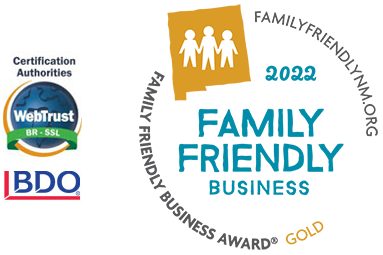Behavior Change Institute specializes in the provision of intensive ABA services through a telehealth supervision model. Through the use of technology, BCI’s Clinicians are able to access client treatment records daily through our secure patient portal. Each treatment goal is graphed daily, and treatment protocols are modified in the client’s health care record, allowing for optimal communication between the child’s treatment team.
What Is Telehealth?
Telehealth is delivery of health related services and information via telecommunication technologies like wireless internet, computers, and real-time audio-visual communication platforms. Behavior Change Institute utilizes a secure, HIPAA compliant Electronic Health Record System to facilitate communication between families, BCI Clinicians, as well as collaborate with other professionals in the families support team (e.g., SLP, PT, OT). Through this state-of-the art system, families can access:
Up-to-date information on their child’s treatment progress
Correspondence with their child’s clinical team
Treatment schedules

Why Telehealth?
According to the World Health Organization, the geographical location of a family is one of the main contributing factors as to whether an individual with a disability will receive access to treatment. Because there is an international shortage of Behavior Analysts, many individuals with disabilities living in rural or geographically isolated areas continue to be underserved.
For example, According to the US Census 2013, there are an estimated 5,853 children in the state of New Mexico who under the age of 18 and diagnosed with Autism Spectrum and only 26 Board Certified Behavior Analysts statewide. The Behavior Analyst Certification Board indicates that the average caseload for one behavior analyst supervising focused treatment is 16-24 patients. This leaves an estimated 5229 individuals under the age of 18 without access to this medically necessary treatment.
We're Bridging The Access Gap
At Behavior change Institute, we believe all families should have access to medically necessary services for their children. In an effort to enhance access and build capacity in rural communities, Behavior Change Institute is relying on advanced technology to deliver treatment via a researched-based telemedicine model.
Under this model, local Behavior Technicians are hired and trained to implement intensive 1:1 treatment in family homes, schools, and community-based settings. Where families do not have access to a Certified Behavior Analyst, BCI brings in clinical expertise from more highly populated areas and the local behavior technicians are supervised remotely, using real-time secured video streams.
Health Insurance Coverage
Nearly every major insurance company is now authorizing expanded telehealth coverage, including New Mexico Medicaid. In most cases, telehealth care is covered the same way in-person care is covered. BCI’s Health Insurance Specialist will work with your health plan to ensure that the services you choose are covered!

Telehealth Treatment Models
Because every child is unique, every treatment plan is unique. We approach telehealth ABA therapy with the understanding that there is no ‘One Size Fits All’ treatment model. Each child receives an individualized treatment plan tailored to their needs and the needs of your family.
Explore our telehealth treatment models below:
Under the partial telehealth model, a direct care provider renders services 1:1 with the patient in their home and the Primary Clinician provides clinical oversight via real-time video conferencing to minimize the number of providers entering patient homes. This model would allow the patient to continue their treatment program at the recommended dosage.
If the patient has the appropriate pre-requisite skills, direct ABA treatment may be appropriate to deliver directly via real-time videoconferencing. This model would allow the patient to continue their treatment program at the recommended dosage.
Necessary Prerequisite Skills:
- Responds to video instruction without assistance
- Basic vocal imitation skills
- Basic motor imitation skills
- Basic joint attention skills
- Able to follow two-step common directions
- Able to sit at a computer for up to 5-10 minutes
- Basic visual-visual and auditory-visual discrimination skills
BCI’s Clinicians are trained to evaluate patient eligibility and family readiness for this treatment model.
Caregiver-implemented treatment may be appropriate if the child or another family member in the household is immunocompromised. This model allows caregivers to be coached to implement treatment programs (or modified treatment programs) at home with their child.
This model would allow the patient to receive a reduced amount of treatment hours while focusing on pivotal skills in a natural environment to prevent regression and maintain learned skills.
Caregivers who are not able to serve as an interventionist may benefit from parent consultation to prevent regression and reduce the likelihood of crisis situations. This is the least intensive model and focuses on antecedent interventions, crisis prevention, and problem-solving individual patient concerns with the caregiver.

